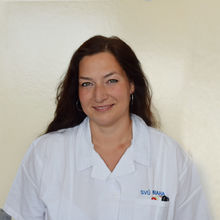Diagnosis of the pathogen is based on bacteriological culture followed by identification by MALDI-TOF or direct molecular genetic detection. We are able to perform antimicrobial susceptibility testing of the isolated pathogen. In addition, diagnostic testing of antibody titres in blood serum can be performed.
Description
The causative agent of the disease is Streptococcus equi subsp. equi, a G+ cocciform facultatively anaerobic bacterium which causes a highly contagious disease in young horses. The disease is characterised by high morbidity with low mortality and an enzootic course of infection. Primary transmission is by droplet infection and subsequent transmission by inflammatory secretions. The pathogen can persist in the stable environment for up to 2 months. The incubation period of the disease is usually 3-6 days.



Download
| Typ souboru | Název | Velikost | |
|---|---|---|---|
| General application form | 0,1 MB | Stáhnout | |
| General application form | 0,4 MB | Stáhnout |
FAQ
Preferably a deep upper respiratory tract swab or air sac content on Amies activated charcoal transport medium. It is recommended to collect samples before starting treatment.
In our experience, molecular genetic detection of the causative agent is a highly sensitive tool for rapid herd screening when the presence of the causative agent is suspected. Furthermore, it has been successfully used during herd recovery after treatment. It is necessary to send a swab without activated charcoal for testing. The actual collection is carried out in a similar way to bacteriological culture.



